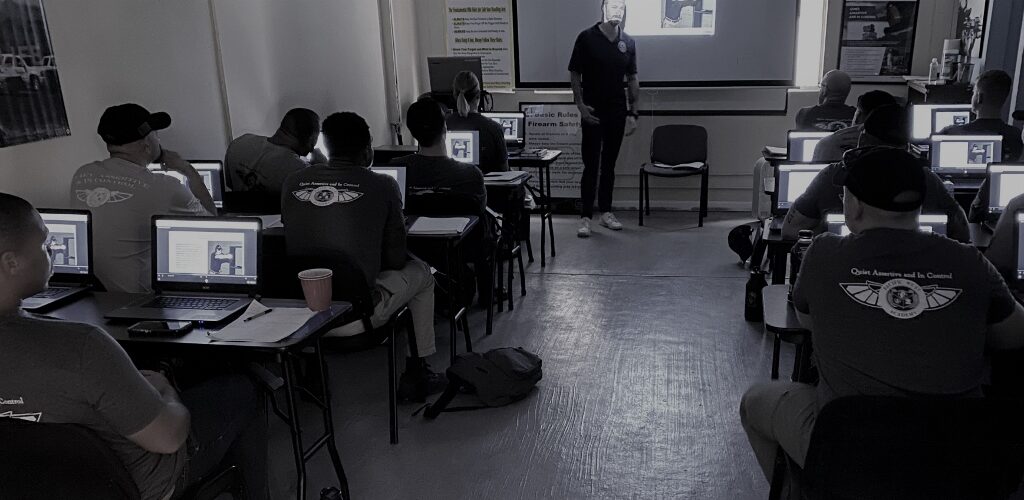

Want to Become a Celebrity Bodyguard? It Requires More Than Athleticism. Here’s Why.
Want to Become a Celebrity Bodyguard? It Requires More Than Athleticism. Here’s Why.
Many athletes and veterans become bodyguards as a way to transition into a full-time job or a means to supplement income as they pursue other projects or goals. These backgrounds have a fundamental necessity of physical fitness in order to be successful. But when it comes to protecting others and serving as a bodyguard or close protection agent, there’s a caliber of strategy, poise, planning, and communication required to protect a client and lead a successful team and detail.
Executive protection classes offer a comprehensive process that equips individuals with the skills and knowledge necessary to provide effective security and protection to clients. And while executive protection training includes basic physical fitness, it also includes defensive tactics, risk assessment, and communication skills. We’ll dive into the other key components of bodyguard training, beyond physical fitness, to highlight the essential aspects that individuals undergo to become a proficient and highly skilled executive protection agent.
Defensive Tactics
Training in defensive tactics helps bodyguards to neutralize potential threats without causing harm to themselves or their clients. It’s not just about having muscle or cardio strength; it’s about movement too. Agents train in defensive tactics by learning a variety of martial art forms (think Jiu Jitsu and Krav Maga), responsibly handling weapons and firearms, and learning arrest and control maneuvers.
Risk Assessment
Effective risk assessment is a critical aspect of bodyguard training. Bodyguards need to be able to evaluate potential threats and assess the level of risk in different situations. This involves understanding the principles of surveillance, recognizing suspicious behavior, and being aware of potential dangers in various environments. Risk assessment training helps bodyguards make informed decisions to mitigate potential threats and ensure the safety of their clients.
Close Protection Techniques
In many contexts, executive protection agents are required to do what are called “advances” on venues, hotels, and other event or accommodation settings. These advances consist of route planning, identifying escape routes, and identifying the vulnerabilities of each location. Doing this allows bodyguards to anticipate and respond to potential threats before they escalate, ensuring the safety of the client at all times. Students at Pacific West Academy are taught how to plan and execute an advance and then enact the detail that required the advance; with each student learning every role.
Close protection is at the core of bodyguard training. This involves learning how to position oneself in relation to the client, creating a protective barrier, and being vigilant about the surroundings.
Communication Skills
Effective communication is vital for an executive protection team and its clients. Communication both verbal and non-verbal must be discrete, concise, and swift. When a lot can happen in a moment’s notice, agents must be able to communicate efficiently with their clients, as well as with other security personnel and law enforcement if necessary. Clear communication helps prevent misunderstandings and ensures a coordinated and seamless response.
Emergency Response and First Aid
Advanced bodyguards are trained to handle various emergencies, including medical situations. First aid and emergency response training are essential components of their education. This includes CPR, basic medical procedures, and the ability to provide immediate assistance in case of injuries or health crises. Being well-versed in emergency response enhances a bodyguard’s capability to address unforeseen situations and protect the client’s well-being.
At Pacific West Academy, agents go through a bodyguard course known as Tactical Emergency Casualty Care (TECC), in which the entire academy building is turned into an emergency simulation in which students have to bandage and exit victims safely.
Legal and Ethical Considerations
Bodyguards need to have a solid understanding of the legal and ethical aspects of their profession. This includes knowledge of state and federal firearm laws, privacy issues, and the appropriate use of force. Training emphasizes the importance of conducting oneself ethically and within the boundaries of the law while providing protection.
Choose Among the Best Executive Protection Schools to Kickstart Your Career
To become a bodyguard, just being active isn’t going to cut it. Joining an executive protection course like the CESS program at Pacific West Academy will engage your brain and body together and condition your reaction time to be fast and mitigate as much harm as possible with an opponent.
Comprehensive, executive protection schools will offer courses covering physical fitness, defensive tactics, risk assessment, close protection techniques, communication skills, emergency response, and legalities. Successful completion of a bodyguard training program prepares individuals for a career in close protection, where they play a crucial role in safeguarding the well-being of their clients.
While students train at Pacific West Academy, the staff assists them with basic guard paperwork, resume building, and other certifications to get graduates employed as soon as possible upon program completion. We are also one among a few GI Bill® approved executive protection schools.
If you’re interested in training for a body guard certification or want to elevate your security career in general, visit PWA.EDU to learn more about our immersive 10-weeks training program.
